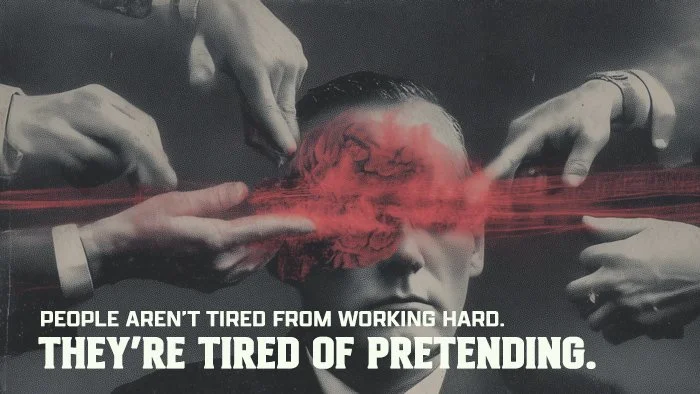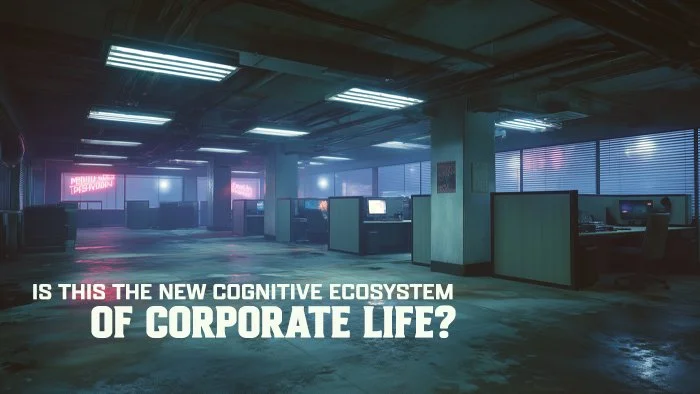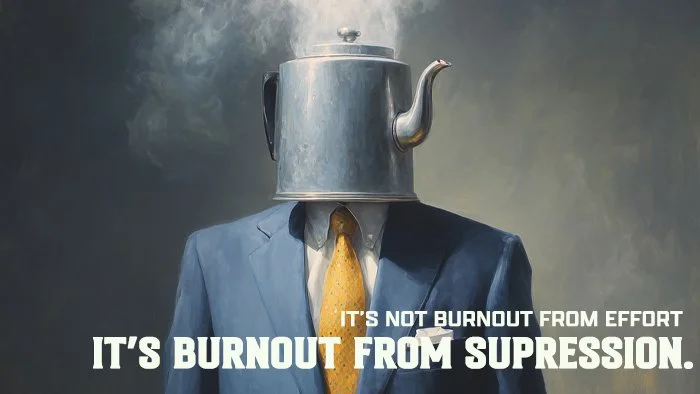The Drainer Matrix
In every modern workplace, there’s an invisible current that hums beneath the tasks, targets and well-lit optimism of the brand. It isn’t the work that burns people out. It’s the theatre around it.
The Drainer Matrix is the new cognitive ecosystem of corporate life. A simulation that rewards those who sound right, not those who think deeply. It’s a culture that confuses alignment for intelligence, compliance for collaboration, and tone for truth. People are not tired from working hard. They are tired from pretending.
Inside this matrix, the act of thinking becomes performative. Ideas must be simplified, sanded down, and rendered into something that looks safe enough to pass through the invisible customs office of corporate approval. The smartest people in the room no longer challenge the brief; they translate brilliance into PowerPoint vernacular. They survive by dulling their own edges.
This is not classical burnout. It is cognitive depletion; the exhaustion that comes from constant self-editing. It’s what Joe Burns described in The Burnout Matrix as the “drained” quadrant: not overwhelmed by work, but by the politics of presentation.
The energy spent decoding tone, tempering dissent, and guessing what’s “allowed” could power entire campaigns if it weren’t being quietly siphoned off to maintain the illusion of harmony.
The tragedy is systemic. As Anneli Hansson argues in Marketing Is Broken, marketing itself has been stripped of direction and reduced to decoration. Strategy became service delivery. Creativity became compliance. The system now punishes risk while pretending to reward innovation. Every deck looks immaculate, every insight identical.
The Drainer Matrix thrives on this paradox. It convinces people they are empowered while ensuring they never step outside the coordinates of expectation. The feedback loop is perfect: safe ideas rise because they offend no one, while original ideas die because they frighten everyone.
The consequences reach far beyond advertising. The same reflex that makes people mute their originality at work also makes them fear being “cringe” online. As Joe Burns wrote in Influence Is Cringe (But Worth It), we have mistaken the fear of embarrassment for a mark of intelligence. Influence, stripped of ego, is simply the surface area of an idea. Yet we limit that surface in the name of self-protection.
Malcolm Gladwell’s “strong-link game” idea applies here too. Progress is driven by the few who produce extraordinary breakthroughs, not by committees optimising mediocrity. But the Matrix is a weak-link system; it’s built to prevent errors, not enable excellence. It’s safer for everyone to be average than for one person to be brilliant and wrong.
That’s why so many professionals look exhausted but accomplished. They have mastered the art of appearing functional while quietly starving their creative nerve endings. Their calendars are full, their inboxes pristine, their minds anaemic.
Escaping the Drainer Matrix doesn’t require quitting your job or denouncing capitalism. It requires cognitive integrity; the courage to think in your own voice even when the system prefers another frequency. It means refusing to translate your ideas into bureaucratic syntax just to be heard. It means remembering that influence is not vanity; it is voltage.
Because the real burnout is not physical. It’s existential. The sense that you have something to say, and no safe place left to say it.
Maybe that’s the secret nobody wants to admit: the modern workplace isn’t broken because of overwork. It’s broken because of undertruth.




